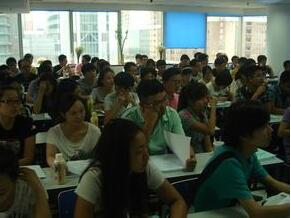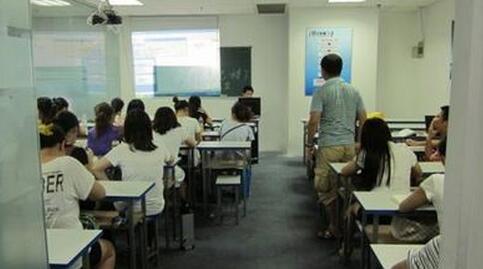“爱哭鬼”居然是日后的“问题*”?
小编不知道南京外语训练的学员中有多少小时候很爱哭,有一行啊研讨标明,爱哭鬼居然是日后的疑问孩童。
南京外语训练小编我从小即是一个爱哭鬼,可是不曾发现自个是一个疑问孩童,所以此此则文章仅供我们无聊时打发时间所用。
Babies who persistently cry are more likely to become problem children with behavioural disorders, researchers say.
研讨人员称,哭闹不止的婴儿更有也许变成做法有障碍的疑问孩童。
According to their study, around one in five infants is ‘difficult’, with excessive crying and problems sleeping and feeding – and many will go on to be difficult children.
研讨标明,1/5左右的婴儿哭闹不止,睡觉就餐艰难,长时间下去,他们中的很多会变成疑问孩童。
It found babies with these issues were 40 per cent more likely to grow up to display unruly behaviour, including attention deficit hyperactivity disorder – ADHD.
研讨发现,有“疑问”的婴儿长大后不守纪律的机率高出40%,包含多动症
Researchers carried out an analysis of 22 studies from 1987 to 2006 which involving a total of 16,848 children, of whom 1,935 showed problems in infancy.
研讨人员剖析了从1987年到2006年对16848名孩童的22份研讨,其中有1935名孩童在婴儿期表现出“疑问”痕迹。
The subjects were followed up to see if they displayed behavioural issues in childhood, including ADHD, anxiety, depression, withdrawal, aggression, destructive behaviour, temper tantrums and general conduct problems.
研讨人员持续调查受测者孩童期是不是有做法疑问:多动症、焦虑症、抑郁症、逃学、敌对、搞破坏、易怒等一般性做法疑问。
The report in the Archives of Disease in Childhood medical journal concluded that the more problems a baby had, the more likely he or she was to become a child with behaviour problems.
《孩童期疾病档案》医学杂志得出的结论是婴儿期的“疑问”越多, “疑问孩童”的“疑问”也就越多。
Professor Wolke said the solution for such babies was to give them more routine in their lives, adding: ‘We have evidence that it works.’
处理的计划是:规范婴儿做法,这可是有据可依的!
证据标明,这种结论是有据可依的,南京外语训练的学员信任与否,自个确定…….









 电子营业执照
电子营业执照 教育资质
教育资质 全国优秀教育网站
全国优秀教育网站 企业信用等级AA级
企业信用等级AA级